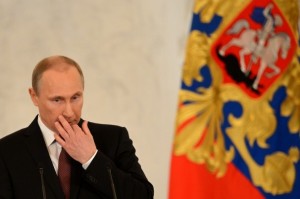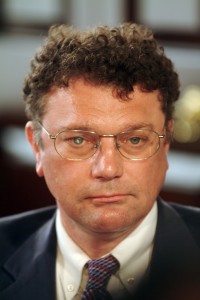 As Crimea becomes the focus of media attention here in the West, it’s easy for the facts to become obscured in the race for getting a headline grabbing news story as the public relations battle between Russia and the West picks up pace.
As Crimea becomes the focus of media attention here in the West, it’s easy for the facts to become obscured in the race for getting a headline grabbing news story as the public relations battle between Russia and the West picks up pace.
In the wake of the Crimea referendum on Sunday 16 March that was observed by more than a hundred bona fide international observers from 23 countries – although not affiliated with the Organisation for Security and Cooperation in Europe – it’s easy to dismiss President Putin as conducting ‘gun boat’ diplomacy when he addressed the Russian Parliament on Tuesday 18 March in what many commentators see as one of the defining moments of his presidency.
What’s not so clear is whether the Ukrainian officer who was shot three and a half hours later was done on the orders of the Russian army as has been claimed by the media reports here in the UK.
 According to Professor Chris Bellamy, one of the world’s leading experts on Russian and Soviet military affairs and an acclaimed Russian historian, who was also Defence Correspondent of The Independent, the reporting of events unfolding in the Ukraine are signs that there’s a ‘phoney war’ being fought in the media.
According to Professor Chris Bellamy, one of the world’s leading experts on Russian and Soviet military affairs and an acclaimed Russian historian, who was also Defence Correspondent of The Independent, the reporting of events unfolding in the Ukraine are signs that there’s a ‘phoney war’ being fought in the media.
“When I reviewed what the Russian media were reporting about the shooting of a Ukrainian officer it started to become very clear that there are two sides to this news story.
“One is the accusation by the Ukrainian Prime Minister claiming that pro-Russian people’s self-defence army of Crimea had started shooting at Ukrainian servicemen in an unprovoked attack and were guilty of war crimes.
“And the other story is that in fact there was a message received by both Ukrainians and Russians about a disturbance outside the barracks and in fact what was at that time an unidentified sniper that shot dead the soldier. Since the incident happened, reliable information has been received from the Russian media that this was an ultra-nationalist Ukrainian sniper.
“Obviously I wasn’t there and therefore can’t comment on this but whatever happened, it triggered the situation where the West condemned Russia as an aggressor.
“Conflating this with Russia’s ratification of the referendum makes a better news story. But is it true? Clearly there’s a media war going on here,” concludes Professor Chris Bellamy.
Professor Chris Bellamy is available for TV and radio interviews.
About Chris Bellamy
He is the former Professor of Military Science and Doctrine and Director of the Security Studies Institute, Cranfield University. From 1990 he was Defence Correspondent of The Independent newspaper, and reported from Saudi Arabia and Iraq during the 1991 Gulf War, from south-east Turkey and northern Iraq during the Kurdish refugee crisis, from Bosnia many times between 1992 and 1997, and from Chechnya in January 1995. He was shortlisted for foreign reporter of the year in the 1996 British Press Awards for reporting from Chechnya. In September 1997 he joined Cranfield University at the then Military College of Science, Shrivenham. In 1999 he designed and implemented the Cranfield MSc in Global Security, and has since run it as Academic Leader. He was Associate Editor of, and a principal contributor to, the Oxford Companion to Military History (2001). He also maintains his involvement with the media as a commentator on modern security and strategic issues.
Media contact Ardi Kolah FCIPR Tel: +44 (0)208 542 8786 Mobile: +44 (0)77100 77941 Email: ardi@kolah.com














Recent Comments